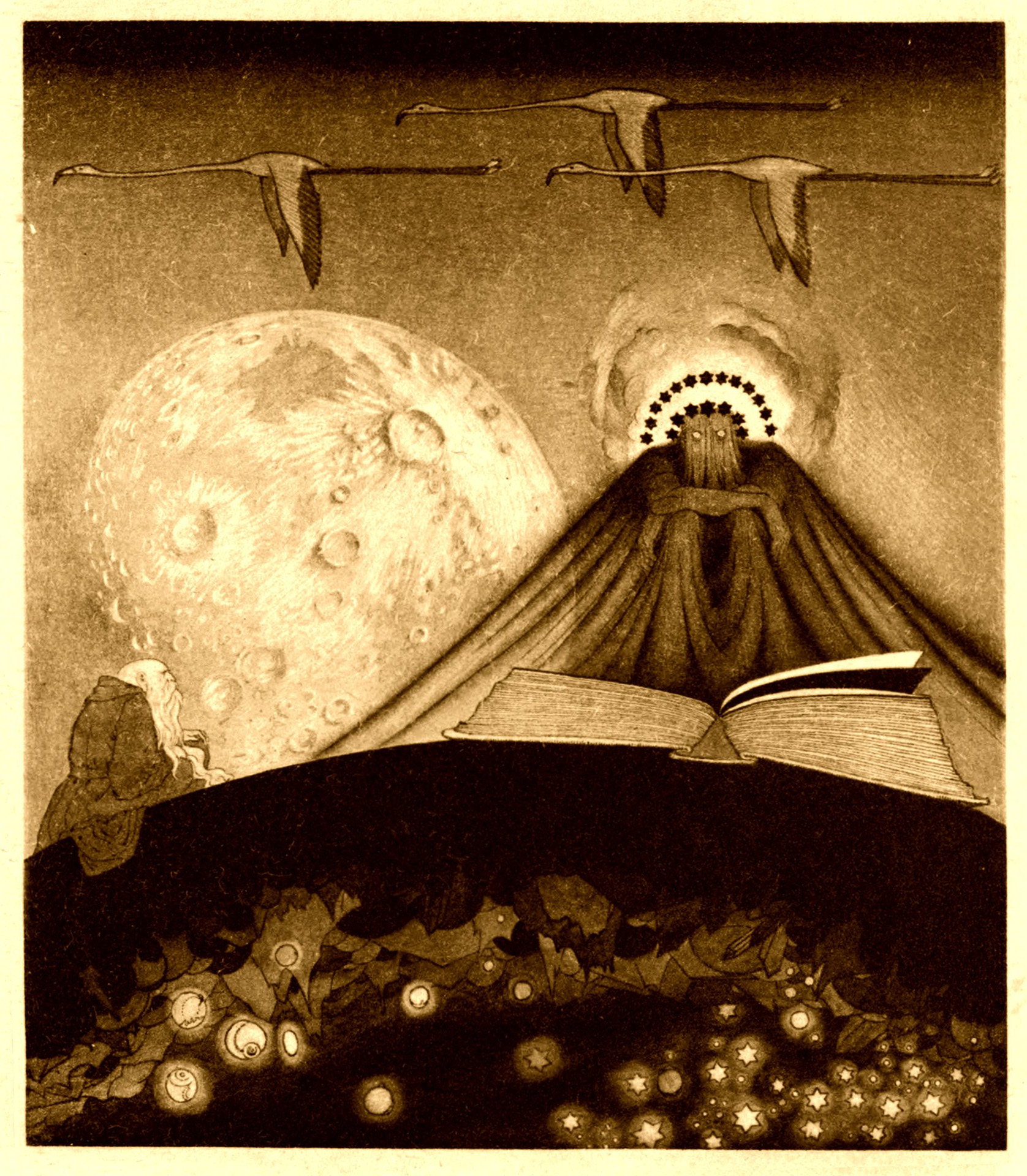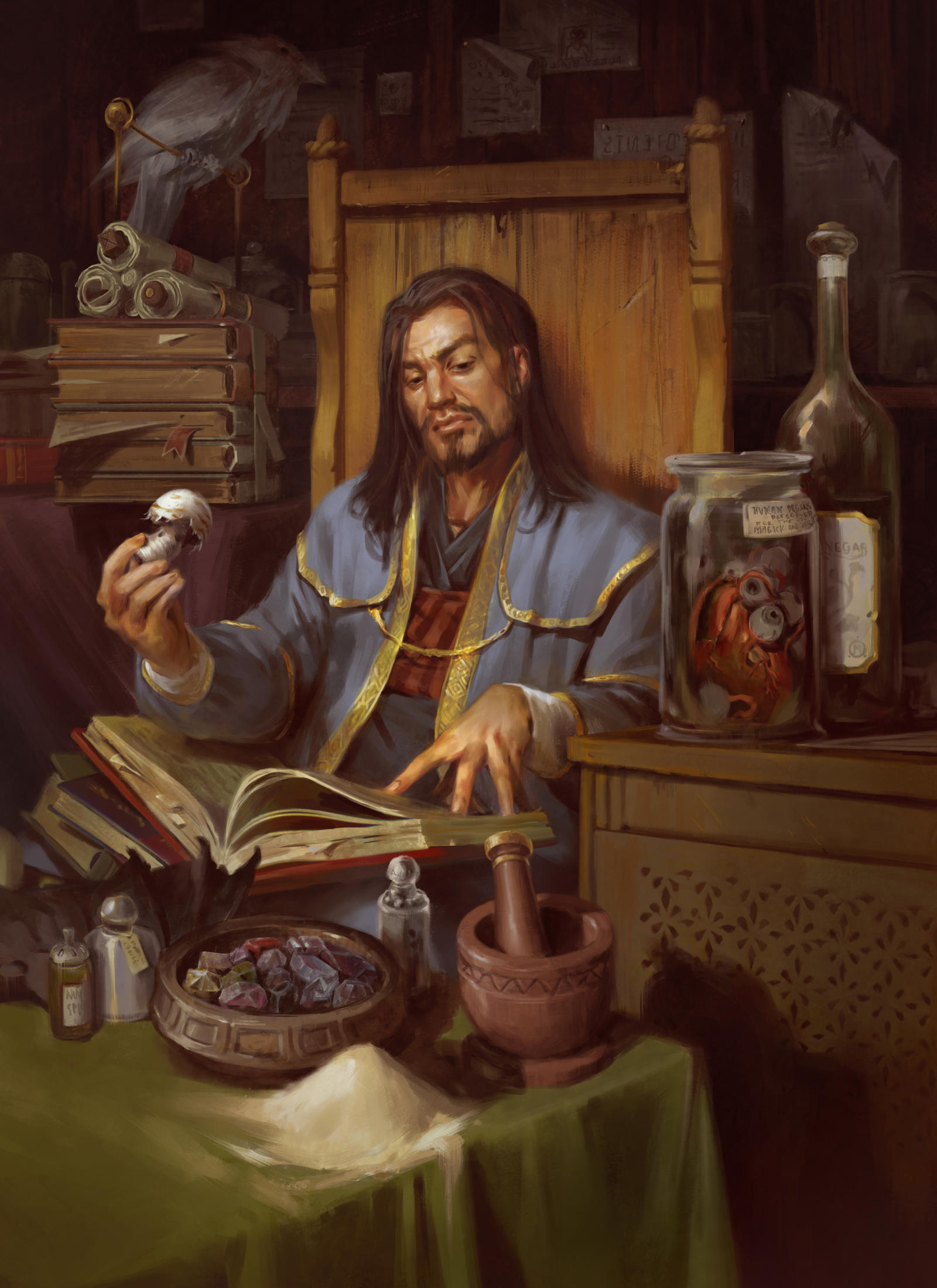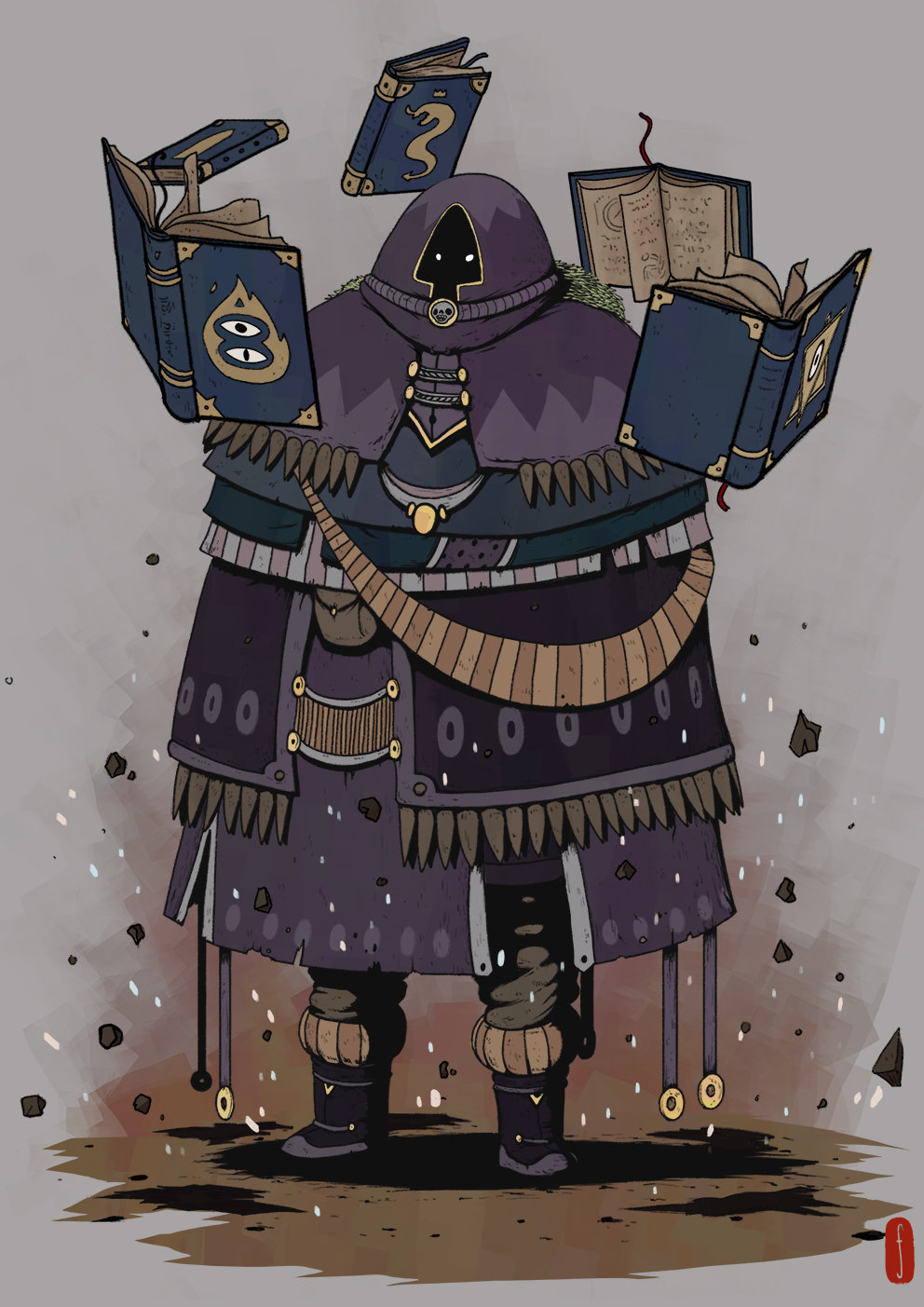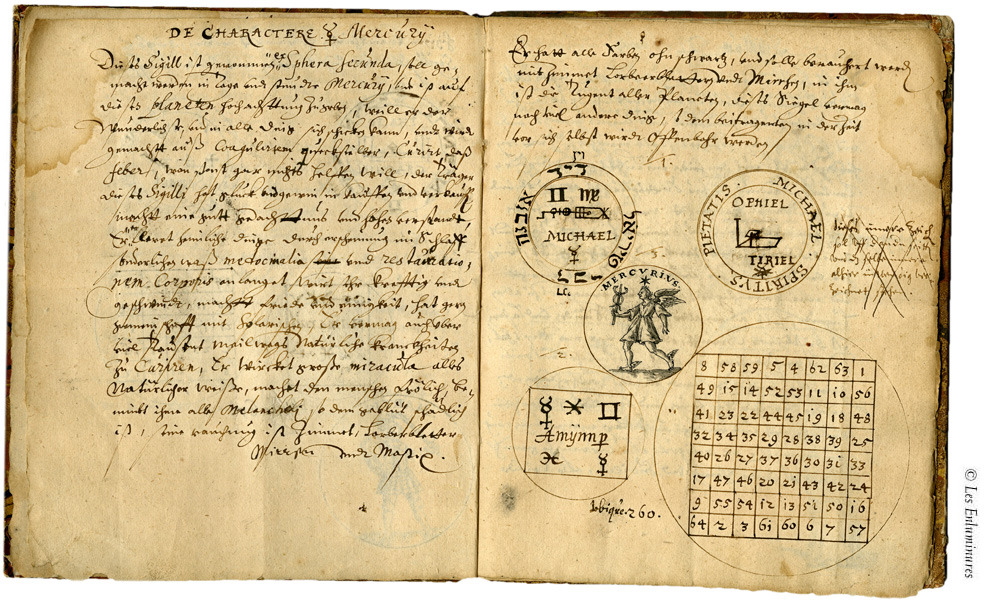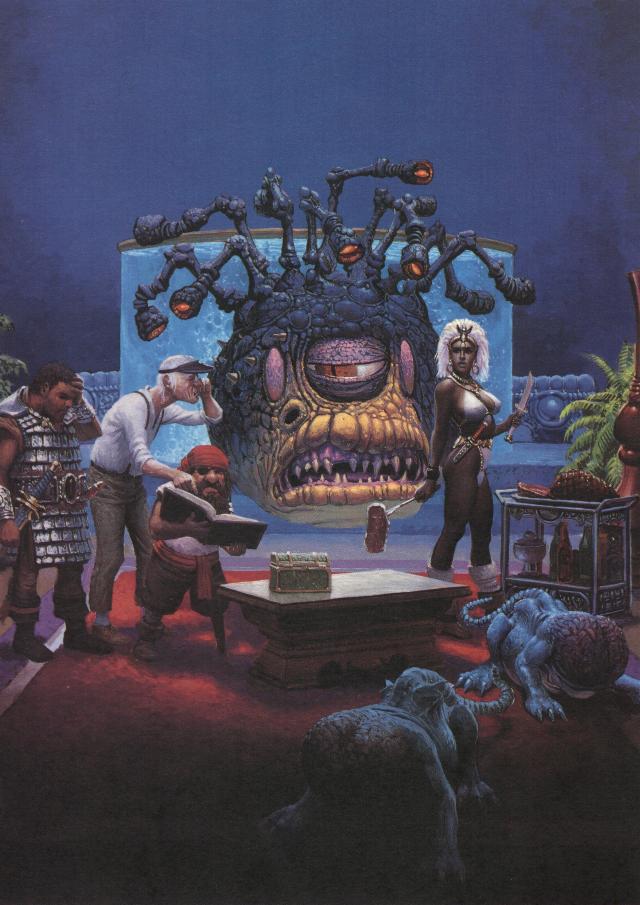[UPDATE 1/6/21: I no longer support spending money on products that benefit Zak S, or giving him positive attention and connection. The short version is that I find credible claims that he has engaged in unacceptable behavior and not made up for it. For more detail, see here for the core of the accusations. To get Zak's side of things, he maintains this separate blog from his main one to post updates on the legal status of these complaints.
Please consider these claims and make your own decision on their validity, and the implications thereof, before either supporting or shunning Zak.]
Below are the current draft of the rules for libraries and books in Fellhold. If you want to skip straight to the best stuff, scroll down to the table for generating random pretentious book titles - I'm pretty happy with how it's turned out.
I want libraries and books to play an important role in Fellhold. Since urban games are largely about information, and dungeon games are largely about exploration, having lots of opportunities to explore spaces in search of information seemed like a perfect fit. Also, with all the demons running around, books with Demon names have got to be really valuable (I need to more directly incorporate that element into the rules, but first I have to figure out the demon rules). Also, the tags and book format sections could probably use some expansion.
The rules might still be a bit chunky, I'll need to playtest them some. Zak's library rules in Vornheim are an obvious and direct influence here, but I've also read some great stuff on books over the years, including Ben L's post on textual corruptions (some ideas from which I'm going to incorporate into the demon rules). Some conversations with Logan Knight have also been influencing my thinking recently, and the alternate resolution approach for quick reference is based on something he told me about.
In addition to the two massive rival libraries of Fellhold and their incessant feuding, raids, and counter raids, characters may encounter smaller libraries in rich homes, forgotten delvings, or within specialist guilds. The following rules are for searching those libraries for useful books.
Library Characteristics
Rating
A library’s rating takes into account both its size and its quality - an enormous library of middling texts might have a similar rating to a tiny, focused library with the best books on the topic.
Tags
Tags describe the kinds of books that the library holds. These tags will usually be related to subject matter, but may also have to do with origin or purpose. The referee is invited to create any tags necessary or desired, but for ease, here is a list of sample tags, numbered for use in random generation as needed.
1) History
2) Dwarves
3) Undead
4) Magic
5) Runes
6) Demons
7) Money & Business
8) Engineering
9) Botany
10) Zoology
11) Monsters
12) Factions
13) Sorcerers
14) Summoning
15) Legends
16) Physical Fitness
17) Warfare
18) Prophecy
19) Ethnography
20) Games
21) Philosophy
22) Nature
23) Art
25) Law
26) Architecture
27) Fellhold
28) Language
29) Biography
30) Fiction
Generating a Library
If you find yourself in need of generating a library, you may use the following procedure. As always, feel free to either randomly generate or to choose the options that suit you best.
Size
1) Tiny
2) Small
3) Medium
4) Large
5) Huge
6) Gargantuan
Quality
1) Wretched (-2)
2) Poor (-1)
3) Middling (+0)
4) Decent (+1)
5) Good (+2)
6) Excellent (+3)
Tags
Roll 1d6 to determine the number of tags. In the case of a 6, roll again and add the new roll to the previous (repeating as long as you get 6s). These may be chosen or randomly determined with the table above.
Rating
Rating is calculated by looking at the size, quality, and tags of the library. A library can have a negative rating - this represents a disorganized mess full of misleading information that seems useful until it is actually read through and thought about.
Size: +1 per size over Medium
Quality: Add or subtract the appropriate value below:
1) Wretched (-2)
2) Poor (-1)
3) Middling (+0)
4) Decent (+1)
5) Good (+2)
6) Excellent (+3)
Tags: Subtract 1 for every tag over 3 - this represents the fact that the more subjects a library covers, the more likely it is that the included books are unfocused or introductory in nature. You may ignore this modifier if creating an especially well-appointed library (like a faction’s private library or that of an ancient lich).
Book Format
Books may take different forms depending on the culture and people who made them. Smaller libraries are more likely to be made up entirely of one or two kind of book, while the largest may have examples of every kind. Assume 1 additional book type for every size over medium, or just decide. Roll or select from below:
1) Bound Books
2) Codices
3) Scrolls
4) Carved Stone Tablets
5) Carved Wooden Rods (read by reading from one end to the other, then rotating, like corn on the cob)
6) Ceramic cones with spiraling marks (Crabman)
7) Tapestries
8) Tattooed skin
Player Character Libraries
After raiding enough libraries and acquiring a pile of esoteric books, it’s possible that players will begin to wonder about building their own library.
Requirements and Starting Characteristics
Requires its own comfortable or better lifestyle in addition to whatever the player character pays for themself
- Begins at tiny size, wretched quality, and only with the tags of specific books the player owns
Upgrading Size
Upgrading size has the following costs (each step must be bought in order):
1) Tiny: -
2) Small: 100 GM x current number of tags
3) Medium: 200 GM x current number of tags
4) Large: 400 GM x current number of tags
5) Huge: 800 GM x current number of tags
6) Gargantuan: 1600 GM x current number of tags
Upgrading Quality
1) Wretched: -
2) Poor: 200 GM
3) Middling: 400 GM
4) Decent: 800 GM
5) Good: 1600 GM
6) Excellent: 3200 GM
Adding Tags
To add a tag, simply pay the combined value of the base rate for the library’s size and quality. For example, if your library is medium and of middling quality, you would pay 200 GM + 400 GM = 600 GM per tag added.
Calculating Rating
Rating is calculated as for randomly generated libraries, except that it is not reduced by tags over 3. Presumably the player is being judicious in their choices of works and understands their relevance, connections, and where to find them when needed. Therefore, the formula is thus:
+1 per size category, +/- quality modifier = Rating
Using a Personal Library
Rather than defining the individual book that is useful in a given situation, a player may use their own library effectively as “one big book” - this means that they may use the procedures for using a book found below, but act as if they have a book with the rating and tags of their entire current library. This ease of use and flexibility is the chief benefit of going to the expense and trouble constructing your own library.
Searching a Library
There are two types of searching: targeted and browsing. They are somewhat analogous to the distinction between crawling and targeted movement. In the case of targeted searching, the character is looking for a specific title. In the case of browsing, a character is simply looking for anything interesting that the library has. For the sake of simplicity, one character cannot perform both actions at the same time - sure, you would notice different titles than your target while searching for it, but you wouldn’t have the time to pull them out, flip through them, and verify that they’re something of interest. Since the sorting, labeling, and cataloging of books is highly non-standard and occasionally purposefully obfuscated, it is never as simple as going to the appropriate section and going in alphabetical order to the proper author.
Targeted
There are two relevant questions in targeted searching: does the library have the desired title? How long do you spend searching for it (whether it’s there or not)?
In the case of titles that are known to be held in a library, you can skip the first question, unless the source of information was bad or mistaken. To determine how long players spend looking for it, as usual, ask yourself if there is any urgency associated with the search - if not, they just find it if it’s there. If there is some kind of urgency, then the players can roll a d20 per 10 minutes searching (or whatever unit of time corresponds to a “turn” or encounter check in your exploration rules) - if the roll plus the library’s rating is equal to or greater than 20, and the book is present, then it has been found. If the book is not present and the roll is equal to or greater than 20, then the characters have figured out that it’s not here.
Browsing
In the case of browsing, a character finds one potentially useful book every 20 minutes. Determine the book’s tags and rating as detailed in the Books section below.
Books
Books are potentially extremely valuable to characters - either as loot to sell or as sources of useful information. The rules below specify methods for generating a random book as needed, as well as for making use of books for on-the-fly reference and long term study.
Book Characteristics
Tags: Books have tags just like libraries, but usually no more than 2.
Rating: Books have a rating equal to the quality level of their library +/- d3. For books found outside of a library, assume a quality level of d3 and add +/- d3 as usual.
Usefulness: A book with a rating below the character's level is considered not useful to them. Consider the absolute value of negatively rated books.
Using Books
Referencing a Book
If a character has a book on relevant subject, they may reference it to answer a question pertaining to that matter. A book can generally answer 1d10 + its rating of questions related to its tagged subject material. Once all of a book’s questions have been used, it is still useful for study or as part of a personal library.
Alternate Reference Rule: If your ruleset makes use of a skill system, allow the player to add the books rating to their skill check. This may take some scaling depending on the method of skill resolution, as the rating assumes a skill system based on x-in-6 chances.
Studying a Book
Studying a book is when the characters spends time reading it and internalizing it, and actually learning the contents. This takes a number of weeks equal to the book’s rating (minimum of one week). In the case of a negative rating, it takes the same time, but at the end of it, the player realizes what a crock of shit the book was. Assuming the book has a positive rating, at the end of the study period, the character gains knowledge of the book’s subject matter. If you use a skill system, they gain an entry-level skill, and if not, the player should simply note that their character is especially knowledgable on that topic and the referee should adjudicate accordingly.
Generating a Random Book
Whenever you need to generate a book on the fly, such as when a character successfully browses a library, use the following method.
Rating
Equal to the Library’s Quality Modifier +/- d3 (treat 1-3 as negative and 4-6 as positive). As with libraries, books can have a negative value - it contains confusing nonsense.
Tags
The book will have 1d2 tags, chosen from among those the library has. Either determine randomly, or choose a likely/interesting combination. If players have specified a type of book, obviously apply those tags in the case of a successful search.
Title
Roll
|
Preposition/ Participle
|
Type
|
Tags (1d2)
|
Phrase
|
1
|
Toward
|
A Theory of
|
History (Random Race/Period)
|
: A Modern Deconstruction
|
2
|
On
|
An Outline of
|
Dwarves
|
: A Refutation
|
3
|
About
|
The Ethics Implied by
|
Undeath
|
: A Shocking Revelation
|
4
|
Regarding
|
A Definition of
|
Magic
|
: Threat or Menace?
|
5
|
Concerning
|
The Remarkable Truth About
|
Runes
|
: A Critical Examination
|
6
|
Within
|
The Shocking Findings On
|
Demons
|
: Memoirs of a Witness
|
7
|
Before
|
Conclusive Evidence For
|
Business
|
: The Authoritative Stance
|
8
|
After
|
The Unspeakable Secrets of
|
Engineering
|
: The Definitive Reference
|
9
|
Upon
|
An Explanation Of
|
Botany
|
: The Journal of (Author)
|
10
|
Without
|
The Underlying Models of
|
Biology
|
: A Rebuttal of Nonsense
|
11
|
In Defense of
|
The Essentials of
|
Monsters
|
: Path to the Truth
|
12
|
Against
|
The Prerequisites for
|
Factions
|
: What You've Been Missing
|
13
|
Describing
|
The Painful Consequences of
|
Witch Kingdom
|
: The Essential Primer
|
14
|
Around
|
The Classics in
|
Summoning
|
: Over 400 Copies Printed
|
15
|
From
|
Conservative Interpretations of
|
Legends
|
: Aligning Perspectives
|
16
|
To
|
The Life Changing Impact of
|
Physical Fitness
|
: A Paradigm Shift
|
17
|
An Attack on
|
The Disturbing Implications of
|
Warfare
|
: The Shocking Truth
|
18
|
Discovering
|
A Radical Examination of
|
Prophecy
|
: What You Must Know
|
19
|
Uncovering
|
The Traditional Wisdom of
|
Ethnography (Random Race)
|
: An Illustrated Guide for Children
|
20
|
Recovering
|
The Ancient Secrets of
|
Games
|
: Expanded, Revised, and Annotated
|
21
|
Covering
|
The Cutting Edge of
|
Philosophy
|
: A Surprising Conclusion
|
22
|
Touching on
|
A Groundbreaking Study in
|
Nature
|
: What They Don't Want You to Know
|
23
|
Summarizing
|
The Best of
|
Art
|
: A Practical Guide
|
24
|
Collecting
|
An Inquiry Into the Causes of
|
Law
|
: How To
|
25
|
Revealing
|
The Collected Works of
|
Architecture
|
: The Unauthorized Tell-All
|
26
|
Setting Aside
|
The Ridiculous Follies of
|
Fellhold
|
: An Expert's Opinion
|
27
|
Embracing
|
The Dark Implications of
|
Language (Random)
|
: A Novel
|
28
|
Re-evaluating
|
The Accepted Truth about
|
Biography (Random name, important to random tag)
|
: The Surprisingly Sexy Truth
|
29
|
Recording
|
The Terrible Fate of
|
Fiction
|
: A Revelation
|
30
|
Capturing
|
A Practical Approach to
|
Cooking
|
: A Summary
|
Author
For authors, use the appropriate name list for the book’s origin (you may randomly determine origin using the standard NPC race roll).
Format
Use the format for the library if found in a library, otherwise randomly determine or choose from the list of book formats.
Value
- Rating x # of tags x 10 Gold Marks
- If a player is buying a negatively rated book from a seller, treat the negative rating as positive - the nonsense looks plausible until studied
- Booksellers have a more practiced eye for nonsense, and so will only give 1/4 the value calculated above (they’ll still buy it, since they can sell to a fool)
- Libraries that know the subject matter of a negatively rated book will refuse to buy it, unless it has historical or cultural significance of some kind, or is considered dangerous
